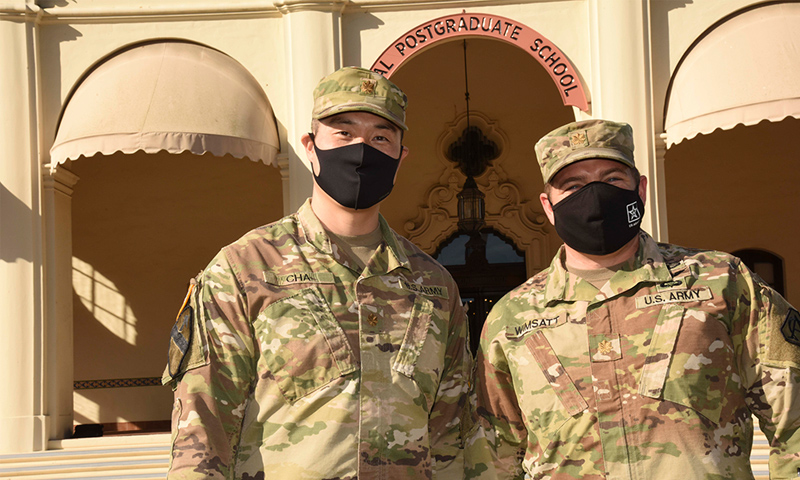The Naval Postgraduate School’s (NPS) Systems Engineering Management (SEM) programs held their latest Outstanding Capstone Project Award competition, with four teams of students developing challenging solutions to real-world problems in their efforts to take top honors.
The competition is the culminating event of the SEM (522), and SEM - Systems and Program Management (722) curricula, each 18 months long with six months spent in part on the capstone project. The student teams focus on finding solutions to specific problems posed by real commands … This year, the Army Research Lab – West Point, the U.S. Naval Academy, U.S. Army PEO Soldier and the Joint Special Operations Command (JSOC) submitted the challenges.
To select the top team for the award, an in-depth analysis by a judging panel evaluates each team based on the the value and impact of their study to the primary stakeholder, as well as the application of concepts and techniques promoted in the curricula.
This year, the student-team consisting of U.S. Army Majs. Ted Cha, Chris Wimsatt and Ray Ybarra, and Army Capts. Blake Davis, Zachariah Shutte, and Douglas Snodgrass took top honors for their work on a solution to JSOC’s submitted challenge of evaluating gaming engines for mixed reality visualization applications.
Essentially, the team helped JSOC analyze and research an appropriate gaming engine that will help create a mixed reality (MR) environment for visualizing an operating environment prior to mission execution. Procurement depends on the pool of commercially-available engines. As such, JSOC required a systematic, data-driven approach for selecting the appropriate engine.
“Every project that the faculty present to students is based on a real-world problem that an actual customer has posited,” said Associate Professor and retired Army Col. Andy Hernandez. “To be viable, the capstone project requires students to use newly-gained skills and their own practical experience [to create] credible, defendable solutions near real-time.”
Based on JSOCs needs, the team needed to develop a structured approach to assess different MR gaming engine alternatives. Using multi-objective decision analysis and additive value modeling, the research team produced a credible, repeatable, traceable selection process to compare alternatives.
“A critical part of the study saw the team combine theory and their own operational experiences to map quantifiable system attributes to value functions,” said Hernandez. “The results provided JSOC a means to compare different gaming engines under a common value scale. While the methodology was developed specifically for the [mixed-reality] gaming engine, the mathematical foundation that the team built was robust enough to apply to different systems that JSOC may examine in the future.”
According to Wimsatt, both the curriculum and the competition have given him an advantage as he enters the Department of Defense acquisition community.
“Spending 18-months in a culture that lives and breathes systems engineering tends to shape individual perspective on the acquisition process,” said Wimsatt. “The SEM curriculum taught at NPS is directly applicable to DOD’s acquisition community. It will help us meet our obligations to the warfighter by delivering a great product, and to the American taxpayer by acquiring the right item the first time."
“An operationally-relevant contribution is what the capstone projects aims to achieve,” added Hernandez. “The SEM capstone project is a tangible and essential link between academia and the operational environment to which all students will return.”
NPS’ Systems Engineering Management programs (curricula 522 and 722) are interdisciplinary, combining systems engineering with acquisition management knowledge and skills. The program is intended to broaden the technical capabilities of officers who may have non-technical backgrounds, so they are better able to manage and lead acquisition programs for the increasingly complex combat systems that the DOD needs.


